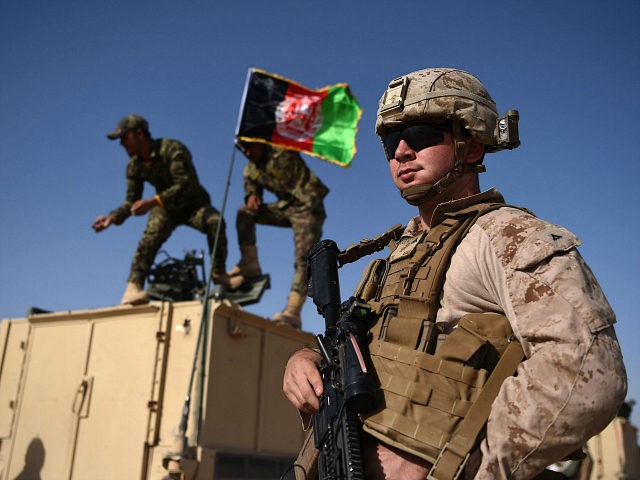The Chinese Foreign Ministry on Sunday blamed the United States for the surge of violence in Afghanistan, including Saturday’s bombing massacre at a girls’ school in Kabul, because the U.S. was supposedly irresponsible to withdraw its forces so “abruptly” from Afghanistan after 20 years of deployment.
“It needs to be pointed out that the recent abrupt U.S. announcement of complete withdrawal of forces from Afghanistan has led to a succession of explosive attacks throughout the country, worsening the security situation and threatening peace and stability as well as people’s life and safety,” Foreign Ministry spokeswoman Hua Chunying said Sunday.
“China calls on foreign troops in Afghanistan to take into full account the security of people in the country and the region, pull out in a responsible manner and avoid inflicting more turmoil and suffering on the Afghan people,” she added.
Hua said her government “opposes violent extremism in all its manifestations” and would continue its “firm support for the Afghan government and people in their efforts to combat terrorism,” without specifying exactly what China is prepared to do.
The South China Morning Post (SCMP) on Monday quoted analysts who said China enjoys hectoring the U.S. from the sidelines, and desires more regional influence, but is not eager to get pulled into the perpetual Afghan bloodbath by offering assistance more substantial than the odd training program for government troops:
Observers said Beijing was unlikely to station troops in Afghanistan, but might work with other countries in the region to reduce the security risk to China. In 2018, Afghan troops were trained in China, which helped them set up a mountain brigade aimed at countering possible attacks by al-Qaeda and Islamic State.
Pang Zhongying, an international relations professor at Ocean University of China, said Beijing was tempted to fill the strategic vacuum left by the US, but was unlikely to play a significant military role there because the risk was too high.
Pang said China could send peacekeepers through the United Nations framework, “but the UN framework is too fragile and it would also be difficult for China to project its strategic influence through this platform”.
Taliban violence surged after the U.S. announced it would delay a planned withdrawal of forces from Afghanistan. American troops were initially scheduled to leave on May 1, 2021, but President Joe Biden extended their stay there through September 11, 2021. Taliban attacks, including suicide bombings and targeted assassinations, killed 120 Afghan security troops and 65 civilians in the last two weeks of April. About 300 Taliban fighters were killed during the same period.
Afghan officials noted there is always a “spring offensive” from the Taliban, but the surge after the U.S. withdrawal announcement brought violence from the insurgency “to the highest level.”
U.S. troops have been deployed in Afghanistan since the September 11, 2001, al-Qaeda attacks.
European allies have asked the Biden administration to delay final withdrawal until NATO forces have time to depart. U.S. military planners believe it would be possible to pull U.S. forces out even sooner than September, possibly as early as July.
Turkey announced its withdrawal from Afghanistan as well, possibly jeopardizing Western plans to keep embassies open in Kabul, since the Turks have been providing security for the airport. Turkish officials said over the weekend they may reconsider their withdrawal plans, possibly rattled by United Nations projections that a huge number of Afghans could seek refuge on Turkish soil if the Taliban launches a major military offensive.

COMMENTS
Please let us know if you're having issues with commenting.